Alphabetizing Worksheets for Ages 4-8
5 filtered results
-
From - To
Discover our Alphabetizing Worksheets for Ages 4-8, designed to make learning fun and engaging! At Kids Academy, we provide an array of printable worksheets that help young learners practice the essential skill of alphabetizing. Our activities are tailored to develop children's understanding of the alphabetical order through playful and interactive methods. Perfect for both classroom and home use, these worksheets can boost your child's reading, writing, and organizational skills. Explore our rich collection to find the perfect resources that make alphabet learning a joyous journey for kids. Available now for easy access and download!
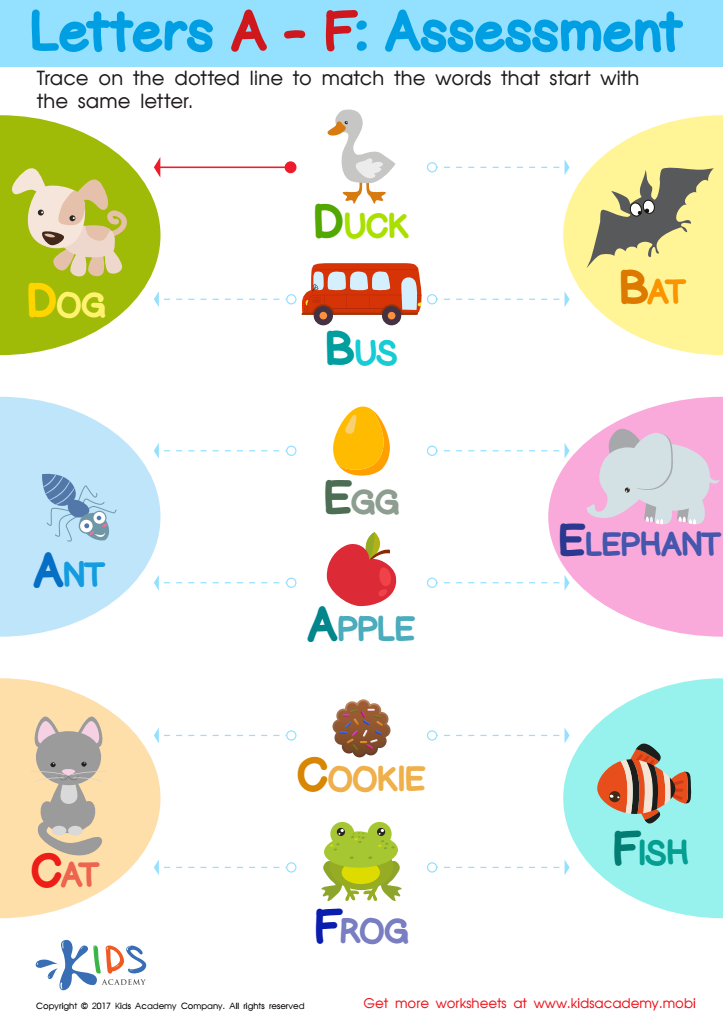

Letters A - F Worksheet
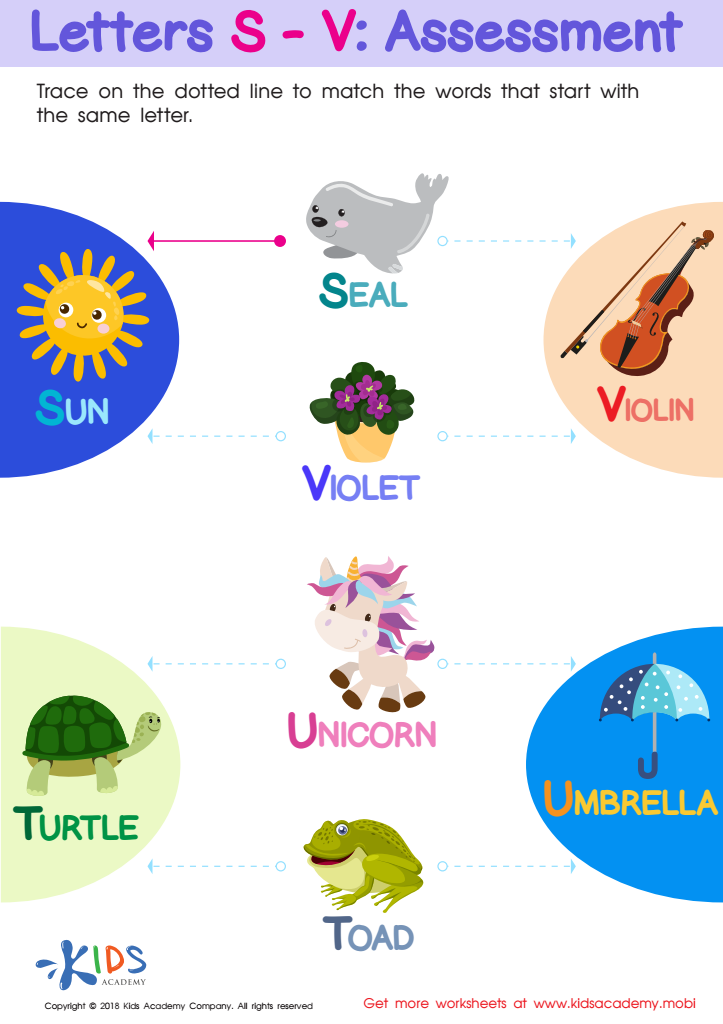

Letters S - V Tracing Worksheet
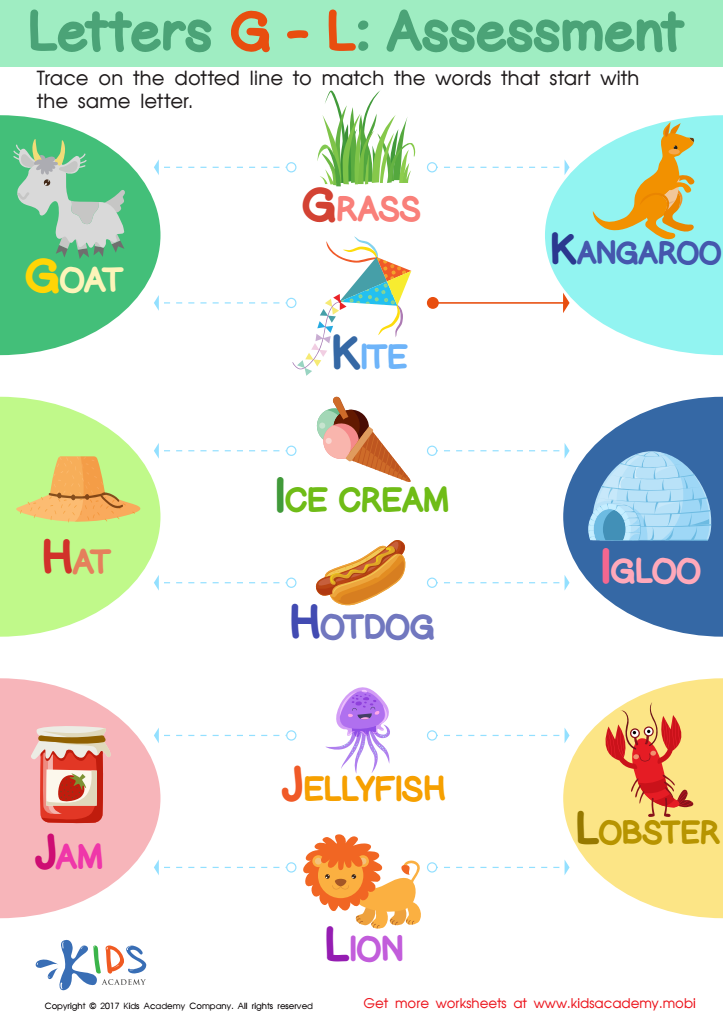

Letters G-L Worksheet
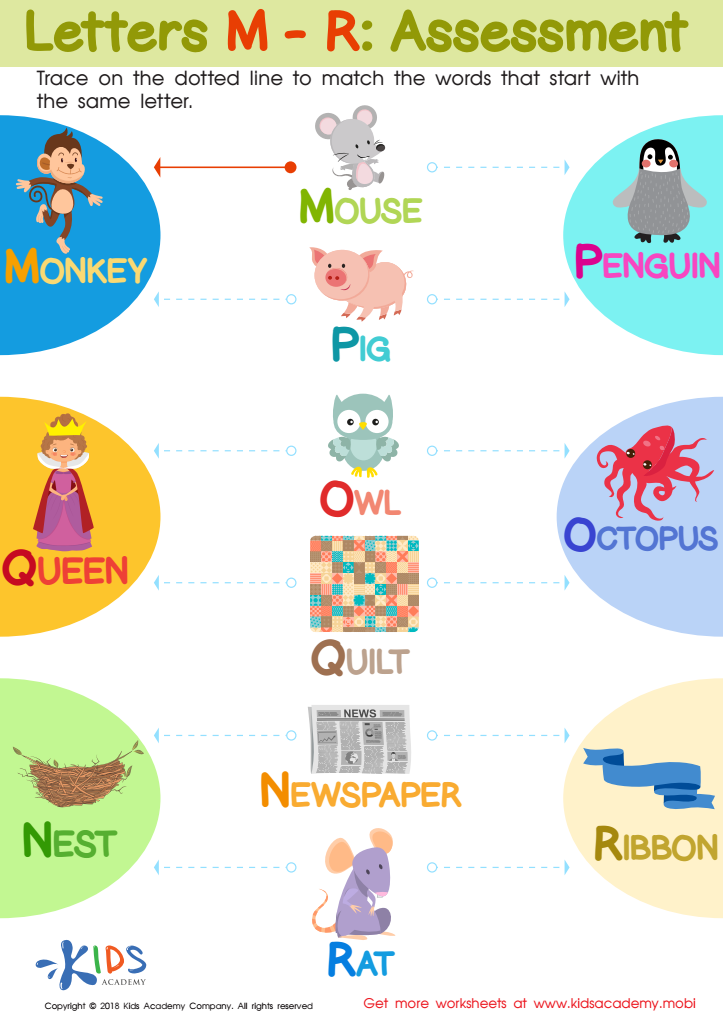

Letters M-R Tracing Worksheet
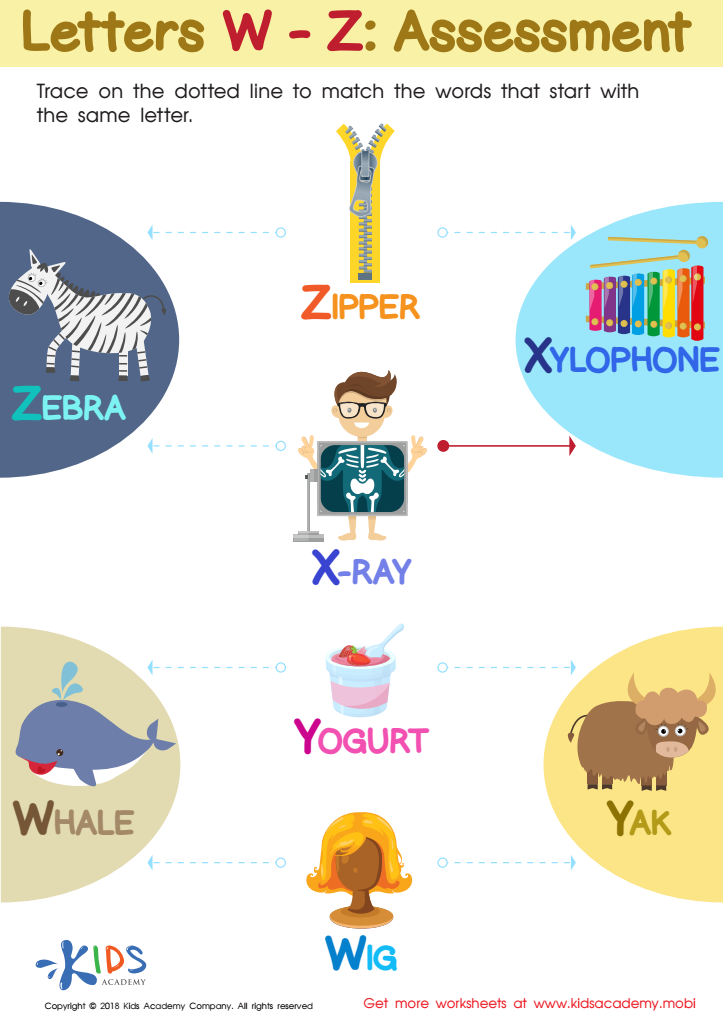

Letters W–Z Tracing Worksheet
Alphabetizing stands as a foundational skill in early childhood education, particularly for ages 4-8. This critical ability entails organizing letters and words in alphabetical order, and its significance cannot be overstated for several reasons.
First, alphabetizing serves as a building block for literacy. Understanding alphabetical order helps children recognize letter patterns and sequences, preparing them to read and spell more effectively. For instance, learning to alphabetize enhances a child’s ability to use dictionaries, indices, and other reference tools efficiently, aiding in independent learning.
Second, alphabetizing strengthens cognitive skills such as memory, concentration, and logical thinking. When children practice sorting letters or words, they develop more robust mental faculties for organizing and processing information, crucial for academic success.
Third, understanding alphabetical order has practical benefits in daily life. It aids in personal organization, whether keeping track of names in an address book or sorting books on a shelf. Mastery of this skill fosters a sense of order and boosts self-confidence.
Lastly, learning to alphabetize in early years lays a groundwork for more complex school tasks. Teachers and parents emphasizing alphabetization arm children with tools to face future academic challenges. Therefore, prioritizing alphabetizing is not just about learning letters—it’s about equipping children with a lifelong skillset essential for comprehensive education and everyday functionality.

 Assign to the classroom
Assign to the classroom





